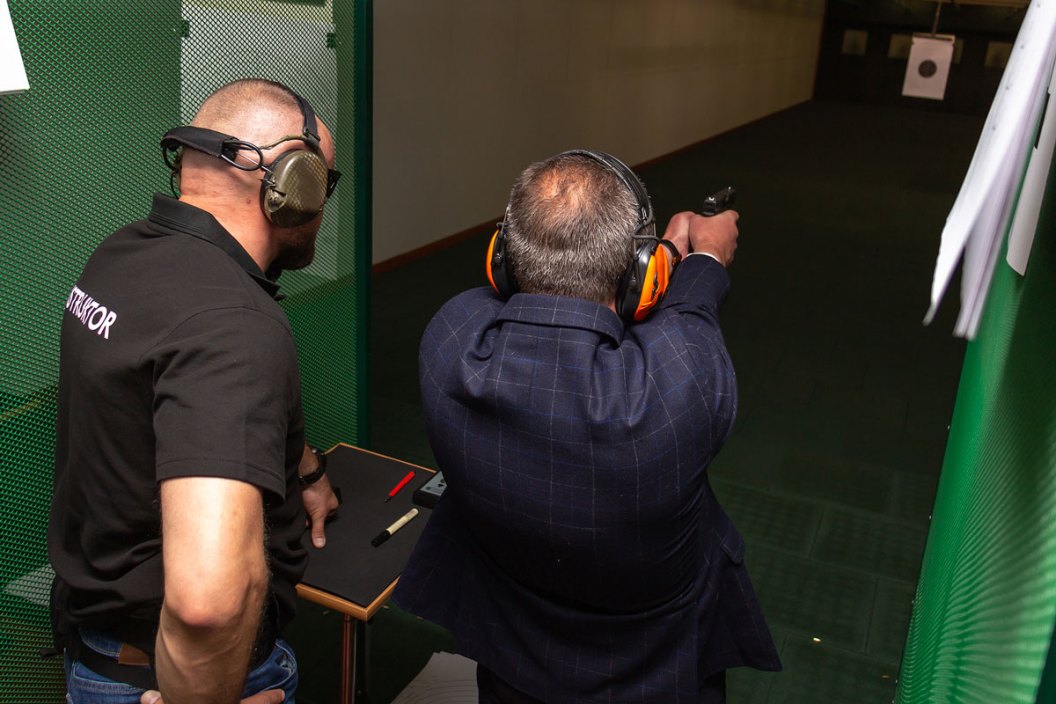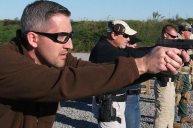Even if it isn't required by law, you'd be wise to get some firearms training if you carry for self-defense.
This past year saw more Americans become gun owners and concealed carriers than ever before. While it is an American right to own firearms, you can never be too educated about gun safety.
In some states, participation in and completion of a concealed carry class is a requirement in the process of attaining a concealed carry permit or concealed carry license, depending the state's nomenclature of choice.
Of course, not every state requires this, nor does every state ever require a permit for a CCW—these are typically called constitutional carry states, in which residents have the right to carry concealed just by being residents who aren't felons.
Even if your state doesn't require a concealed carry class, you should absolutely take one, or several, if you intend to carry a handgun for self-defense. Heck, if you're merely a gun owner who doesn't carry, you should still take a basic safety course or training course if you haven't already. This type of instruction is required by all states to obtain a hunting license.
Some concealed carry courses are taught by law enforcement, but they are more commonly taught by firearms instructors.
To be sure you're getting solid instruction, take a course taught by an NRA-certified instructor. In addition to covering the severe legal ramifications of a potential deadly use of force, a class will also cover the concealed carry laws pertinent to your state. The patchwork of CCW laws in the U.S. is a labyrinthian miasma that can be difficult for experts to navigate.
A main issue that will be covered is reciprocity. Some states will recognize concealed carry permits from other states with similar restrictions, but it's not always a one-for-one deal. For instance, the state of Illinois does not honor any concealed carry permits from other states. However, an Illinois concealed carry permit is valid and recognized in Alabama, Arkansas, Indiana, Iowa, Minnesota, Montana, Nebraska, Nevada, North Carolina, Ohio, Tennessee, Texas, Utah, Virginia, Wisconsin and the territory of Puerto Rico—in addition to the constitutional or permitless carry states.
Most concealed carry courses will be paired with or offered in conjunction with a basic pistol course, which will teach students how to safely handle and shoot a handgun. They are often offered separately for those who have already taken a basic pistol course and want to move on to a CCW-specific training course.
A concealed carry training course can be as short as two or three sessions or take several weeks depending on what you sign up for, though classes during COVID are sometimes limited.
All concealed carry courses begin with a good amount of classroom instruction with a strong emphasis on firearm safety. If you feel like a class or instructor is not safe, though, leave immediately.
Depending on the breadth of the course, it may also include detailed use of force and legal instruction, as well as in-class firearms training on properly drawing and presenting a handgun (using dummy guns) and/or a live-fire component at a shooting range.
More advanced courses will teach more nuanced subject matter, like drawing from specific holster types and more rigorous training at the range with live ammo.
NEXT: YETI'S HOPPER FLIP 18 SOFT COOLER IS AN ESSENTIAL AMONG OUTDOORSMEN
WATCH





